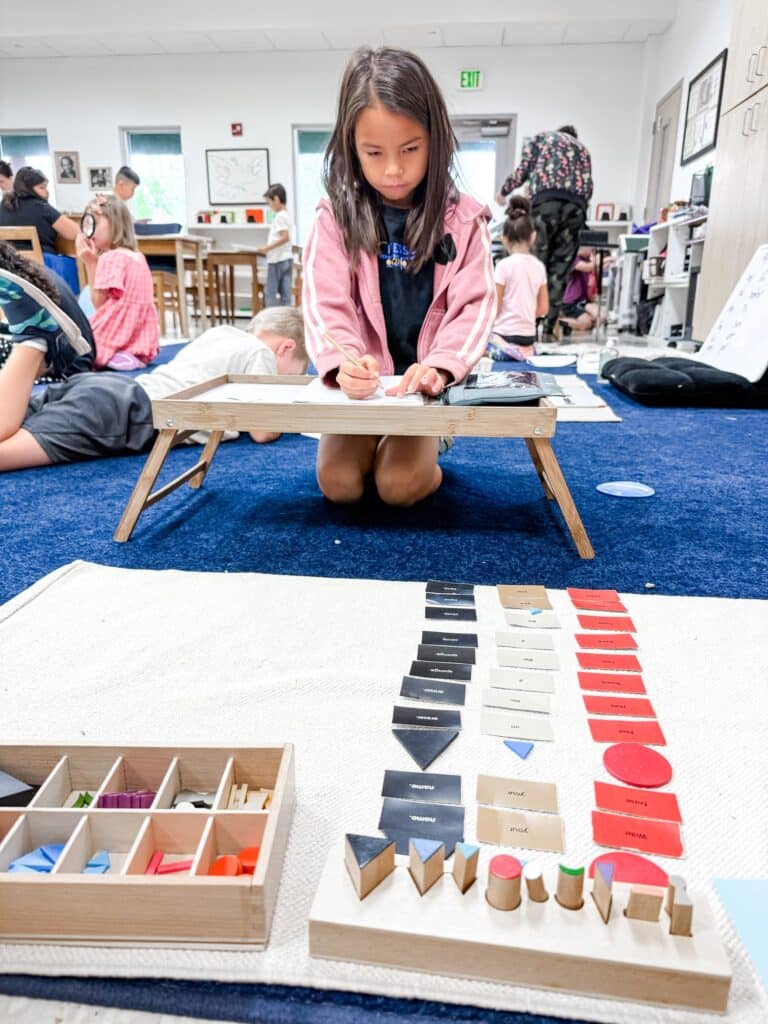Montessori materials define the hands-on nature of this learning approach. Each material isolates a single concept or skill, allowing children to explore abstract ideas through concrete experiences. Carefully sequenced lessons help students move from manipulation to mastery, building deep intellectual understanding. The materials appeal to the senses and invite active exploration, encouraging children to discover rather than be instructed.
Child-directed work fosters intrinsic motivation and self-regulation. Within a thoughtfully organized, calm classroom, children have the freedom to choose activities that capture their curiosity. This independence encourages engagement, focus, and responsibility. Teachers act as guides, ensuring order and respect while allowing students to explore individually or collaboratively at their own pace.
Uninterrupted work periods complete the Montessori cycle, providing children with sustained time to engage deeply in their chosen tasks. Extended blocks of time—typically two to three hours—allow students to develop concentration, persistence, and a sense of completion. Rather than dividing the day into short, segmented lessons, Montessori classrooms value focused work that fosters both independence and community responsibility.
Together, these five elements create a coherent system that honors the developmental needs of each learner and preserves the fidelity of Montessori education at its highest level. At MSSA, we take pride in keeping these pillars at the forefront of our mission and philosophy.

